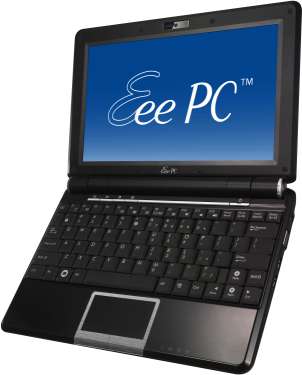From our front-page news:
That's the big question, and it's a good one brought up by VoodooPC founder Rahul Sood over at his blog. His thoughts are that with the advent and development of netbooks, PC innovation could be curbed, and for the most part, I can agree with him on most points. An interesting point brought up that I didn't think much about before, is that it can prove difficult today for someone to tell the difference between a netbook and a notebook. It's easier for those of us who know, but how would a regular consumer know?
At CES a few weeks ago, AMD showed me an upcoming HP notebook, one that I was so impressed with, I awarded it one of our Best of CES 2009 awards. It includes AMD's latest Atom competitor, Athlon Neo, so in some regards, you might consider it a netbook right off the bat. But, it isn't, because it features a 12" form-factor, and that likely disqualifies it from the netbook category immediately.
So when a notebook comes in that size, features almost everything a regular notebook does in terms of connectivity, how exactly does a consumer tell the difference? I can state that for the most part, I enjoy netbooks to some small extent, but I'd easily pay two or three times as much for a 10" notebook if it could offer me the power of a real notebook (with a real full-blown CPU). But, that's the problem... these netbooks and other variants may throttle growth in the regular notebook market, and it's easy to see why.
Rahul brings up some other good points as well, so it's well worth a read.

Netbooks are everywhere. It's amazing that companies are all launching these tiny platforms and just as quickly they're busy slashing prices in order to stay ahead of the next guy. In some ways Netbooks helped generate sales in a tough economy - but as the core of the Netbook platform morphs into other devices we may find ourselves in an increasingly challenging situation.
Source: Rahul Sood's Blog
At CES a few weeks ago, AMD showed me an upcoming HP notebook, one that I was so impressed with, I awarded it one of our Best of CES 2009 awards. It includes AMD's latest Atom competitor, Athlon Neo, so in some regards, you might consider it a netbook right off the bat. But, it isn't, because it features a 12" form-factor, and that likely disqualifies it from the netbook category immediately.
So when a notebook comes in that size, features almost everything a regular notebook does in terms of connectivity, how exactly does a consumer tell the difference? I can state that for the most part, I enjoy netbooks to some small extent, but I'd easily pay two or three times as much for a 10" notebook if it could offer me the power of a real notebook (with a real full-blown CPU). But, that's the problem... these netbooks and other variants may throttle growth in the regular notebook market, and it's easy to see why.
Rahul brings up some other good points as well, so it's well worth a read.

Netbooks are everywhere. It's amazing that companies are all launching these tiny platforms and just as quickly they're busy slashing prices in order to stay ahead of the next guy. In some ways Netbooks helped generate sales in a tough economy - but as the core of the Netbook platform morphs into other devices we may find ourselves in an increasingly challenging situation.
Source: Rahul Sood's Blog
